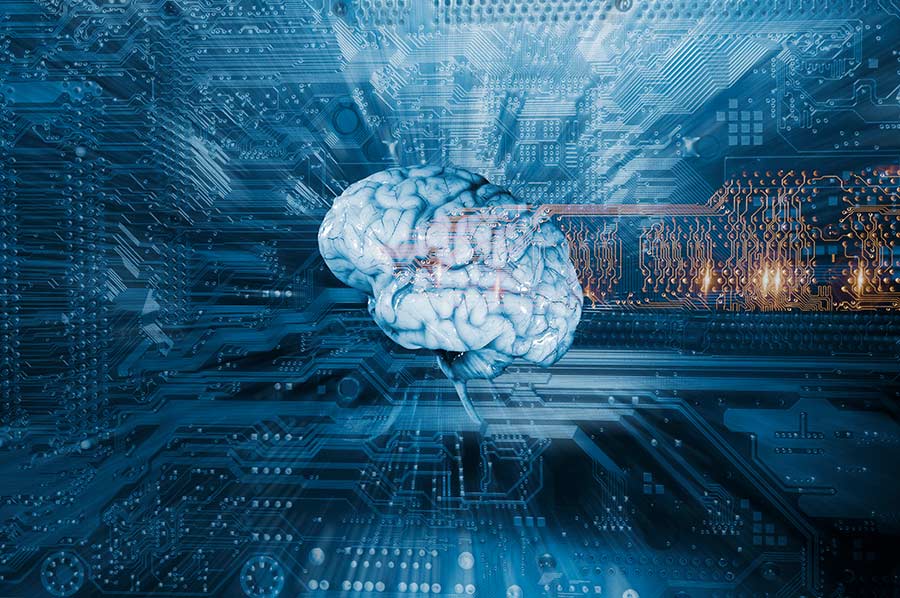Artificial intelligence (AI) and machine learning have become increasingly popular in recent years, thanks to advances in technology that allow these systems to ingest millions of copyright images as part of their learning process. However, there are concerns about the potential copyright implications of this technology, as artificial intelligence systems have the ability to create content based on copyrighted material.
One major issue is that artificial intelligence algorithms are often trained using massive datasets of copyrighted images, which puts their creators at risk of copyright infringement. These datasets can be taken directly from online platforms like Google Images or Flickr, or generated through scraping techniques that crawl the web for recognizable content.
By taking in that content and using it as the basis for new content, is the software violating the copyright of the original creators whose work is being used as “learning” for these machines?
Does AI Infringe on the Copyright of the Original Creators?
One major concern is that artificial intelligence algorithms may be infringing on the copyrights of the original creators whose work they use to learn, without their knowledge or permission. For example, if an artificial intelligence algorithm is trained using images of people’s faces and then creates new content that contains recognizable facial features, one could argue this should be considered copyright infringement.
There are also concerns about whether artificial intelligence systems should be eligible for fair use protections, as they may be seen as “creative” works in their own right. While some argue that artificial intelligence systems should be protected under fair use, others believe they should be required to seek permission from the original creators in order to use their copyrighted content.
Massive Data Sets Obtained without Creators’ Permission
These algorithms often rely on massive datasets of copyrighted images, which can easily be obtained from online platforms like Google Images or Flickr. However, these datasets are often created without the permission of the original creators.
One potential solution is for artificial intelligence software developers to enact stronger protections for intellectual property rights and require users to seek permission from original copyright holders before uploading their work or content. This would help avoid any potential issues with copyright infringement and ensure that artificial intelligence systems are used in a responsible and ethical manner.
Do New Images Infringe on the Creative Rights of the Original Image Creators?
Another issue is that artificial intelligence systems can often create new content based on copyrighted images, which may infringe on the original copyright holder’s rights.
For example, if an artificial intelligence algorithm is trained on a dataset of images of famous landmarks, it may be able to produce new images that include similar elements.
However, some argue that artificial intelligence systems should be considered unique works in their own right and therefore not subject to the same legal constraints as traditional photographs or drawings.
What Happens When the AI is Writing Software Code Based on Other Code?
In a recent lawsuit against GitHub, Microsoft and OpenAI, plaintiffs proposed class action lawsuit allege that artificial intelligence algorithms based on code repositories like GitHub can potentially infringe on copyright laws.
In particular, artificial intelligence systems that are trained to write new software code based on existing code may be infringing on the original author’s copyright.
Opponents take the position this would be “software piracy on an unprecedented scale.” This lawsuit could have massive implications on the use of AI and copyright laws. Some argue that AI needs to change, while others argue the copyright laws need to change in order to keep pace with new technologies like artificial intelligence.
While artificial intelligence has many potential benefits and applications, it also raises important questions about the implications of copyright infringement and intellectual property rights. As artificial intelligence systems continue to evolve and become more widespread, it will be important for policymakers to carefully consider these issues and develop regulations that protect both creators and artificial intelligence developers.
Is AI Engaging in “Fair Use”?
There is also ongoing debate about whether artificial intelligence systems should be considered “fair use” in the same way that traditional content creators are.
While proponents argue that artificial intelligence should be granted the same protections as human creators, others argue that AI algorithms can and should be regulated differently. Are they using your image? Are they looking at millions of images to learn and gain “inspiration” to create their own images, video and text?
What is the Future of AI, Machine Learning and Copyright?
Ultimately, it will be up to policymakers to decide how artificial intelligence should be regulated when it comes to copyright infringement and intellectual property rights. But in order to make informed decisions, it is crucial that we continue to explore these issues and consider all perspectives.
In the end, the issue of artificial intelligence systems infringing on copyright is a complicated one that requires further discussion and debate. One key question is whether artificial intelligence can truly be considered an “author” of its own work, or if it should still be held to the same standards as traditional artists and creators.



